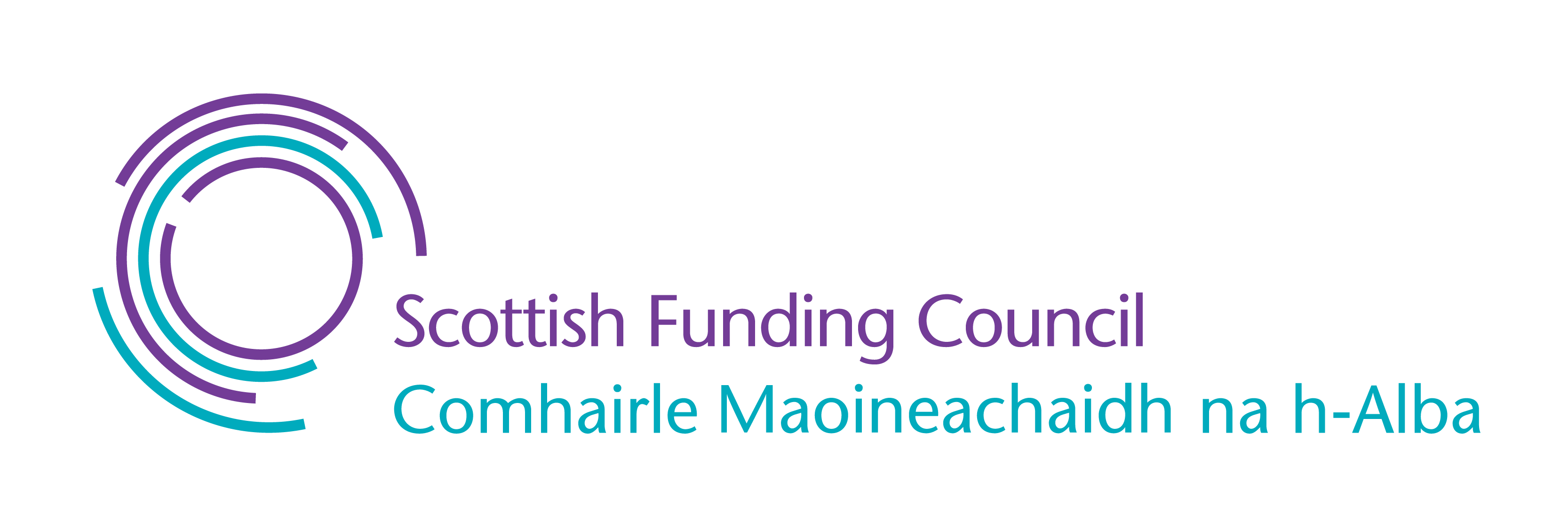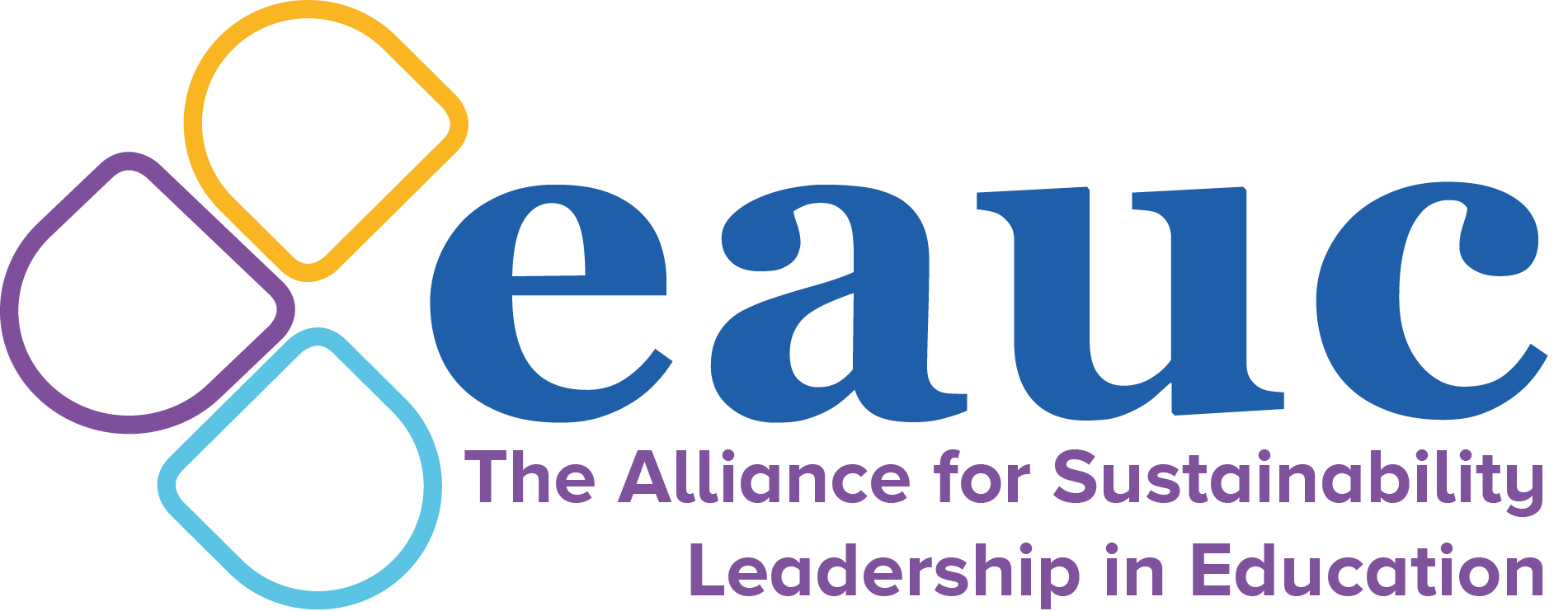Stage 1 of the 2024 Green Gown Awards UK & Ireland are now closed.
Applicants will be informed of their status on 16 July.
We always acknowledge receipt of applications, so if you have submitted an application and not heard from us, please contact us directly to check we have received it.
All categories are open to any tertiary education establishment - including all post-16 educational institutions such as colleges, universities and learning and skills institutions. Specific categories are also aimed at student applications and 3rd party applications**.
Click here for application forms
What's new for 2024
We have refined the criteria to ensure we're not only acknowledging impactful initiatives but also spotlighting innovation that drives positive change.
If you are a small institution, we really encourage you to apply. The annual turnover threshold is now set at £100 million or below (previously it was £50 million). Judges are allowed discretion to award up to 2 winners for each category to distinguish between large and small institutions. However, this will only be done when applications are of a high quality - it is not mandatory.
The Sustainability Institution of the Year category will include a live, virtual judging round via Microsoft Teams at stage 2. We would expect representation from senior management, curriculum, operations and student representation (limited to no more than 5 representatives in total) as this will enhance and verify the whole institution approach for this category. Further information will be provided to all finalists on 16 July 2024. This application form is to be completed by the team lead applicant and must be endorsed by a senior manager (e.g. vice chancellor/ principal).
You can apply with as many projects as you like, but a project can only be entered into one category only (previously it could be submitted to multiple categories). So please read the category criteria and choose wisely.
And remember
2 Year Rule* - Initiatives which won or were highly commended in the previous 2 years will not be considered for this year’s awards, unless they can provide evidence of further, significant improvement since the last application and this improvement is clearly documented in the application form. They could also consider applying to the Sustainability Institution of the Year category provided that there is evidence of further improvement since the last Award. Other initiatives from the institutions concerned, or ones which were previously submitted but unsuccessful, can be re-submitted, again with the condition that they provide documented evidence of further, significant improvements since the previous submission. Click here for the full conditions of entry.
» These 8 categories are included in the International Green Gown Awards.
All categories will be awarded to the lead institution with the exception of the Individual and Team categories - Research with Impact Award (Student), Sustainability Champion (Staff/Student/Teams) - which recognise an individual or team within an institution.
We recognise that partnerships can have a significant role to solving sustainability issues and these will be recognised - if appropriate - in the form of a group/partnership name. This must be declared on your application form.
To make a strong application please provide facts and figures to support your application and meet all the criteria within your chosen category. You should also include the following generic criteria:
Organisational Categories Criteria: |
|
2030 Climate Action - PrizeInstitutions are having to plan how they get to net-zero emissions. This category focuses on the steps that institutions are taking and planning to take to reach their targets. The judges are looking for innovative ideas and approaches that institutions are taking or planning. It is recognised that there will not be the normal evidence or impact available as this category is looking at current plans, with the focus being on intentions. Carbon reduction and adaptation to the effects of climate change are essential for institutional resilience and business continuity – both executive-level issues for our institutions. Universities and colleges are exposed to significant climate risks and responsibilities to meet targets and institutions have to be taking bold steps to meet these targets while ensuring student outcomes and satisfaction are maintained. The judges will be looking for:
The aim of this category is to share the good efforts institutions are taking as well as learning from each other on areas that have not worked so well. Whilst the end results will not be available, judges will look at projected impacts. TEC will kindly offer to the 2024 Winner of the 2030 Climate Action category free 10 days consultancy in direct support of delivery of the winning project subject to a maximum of £8,500 (excluding VAT). Full conditions and details will be sent to the Winner. If judges bestow a win to both a small and a large institution, the judges will agree on the split proportionate to the scoring given. The Winning entry will automatically be put forward for the International Green Gown Award for 2030 Climate Action. Proudly supported by TEC. Get inspiration from past Winners and Finalists here. |
|
Benefitting SocietyAs anchor institutions in their communities and cities, universities and colleges benefit society in many ways. This category captures the powerful and innovative ways education institutions are realising their purpose in today’s society to benefit the lives of individuals, communities and wider society. Examples will range from economic, social and environmental impacts with organisations and sectors outside the institution where innovative new approaches to bringing positive benefit can be found. Although all applications will be considered on their merits, the judges will particularly be looking for innovative community engagement type of initiatives which have an element of proactive, new, community and social concern and positive impacts, rather than the very worthy and commendable ‘grass roots’ and ‘business as usual’ activities. Amongst others, examples might include how an institution applies and exchanges its student and academic knowledge with communities or partner organisations, how it uses its finances and investments, how it designs and manages its campus, how positive actions bring global benefits such as circular economy and Modern Slavery Act approaches - all to demonstrate its values and the positive value it brings to society. A powerful example of such innovative and proactive engagement is the Living Lab approach: establishing projects that draw on students’ curricular work or academic research to address real sustainability challenges in stakeholder partnerships with community bodies. Activities which have a substantial student element should be submitted to the Student Engagement category. Judges recognise that not all projects will have a carbon saving, or include elements of environmental, social, cultural as well as economic benefit. The Winning entry will automatically be put forward for the International Green Gown Award for Benefitting Society. Get inspiration from past Winners and Finalists here. |
|
Campus Health, Food and DrinkThis category includes all food, drink, kitchen and hospitality aspects of healthy, sustainable institutions. The judges will be looking for holistic approaches across the whole institution that show creativity, innovation and consideration for how healthy food and drink is procured, cooked and served considering environmental and social issues. We’re looking for examples that go beyond achievement of standards, good practice and current trends such as plant-based options that rely on ultra-processed foods as substitutes. Judges will be looking at the whole life-cycle approach, which could include:
Applications are only likely to be successful if they provide quantitative evidence that demonstrates cause and effect between activities undertaken and improvements achieved. Similarly, judges are looking for holistic approaches rather than a focus on one or two individual campaigns. Get inspiration from past Winners and Finalists here. |
 |
Creating ImpactThis category recognises institutions that have achieved significant sustainability-related outcomes, on-campus or within their community, using minimal and/or limited resources. Initiatives need to demonstrate the relationship/link between the number of resources used (for example staffing, budget, time) and the level of impact achieved (for example quantifiable changes in behaviours and/or reportable metrics). Institutions that have received substantial external funding for their initiative are not eligible for this category. Initiatives could include those which can demonstrate significant sustainability achievements (such as sustainable products, processes or learnings) in a relatively short period and/or with a restricted budget, and/or with a small staff base e.g. good progress from a low base. Projects that raise the broader profile of sustainability and working in your community will be particularly favoured. Initiatives can cover a single aspect of sustainability or a focussed impact area or as a whole-institution approach, including but not limited to: facilities & operations; learning & teaching, research; leadership and governance; community; procurement, and engagement. However, regardless of the topical focus, the primary aim of this category is to demonstrate how institutions can still achieve creative and high impact outcomes with limited resources. Applications must show how learning from others has been implemented and for the greater chance of success demonstrate how the initiative can be extended to and/or replicated by other organisations. Note: If your initiative has a strong research element you should enter for the Research with Impact category. If your initiative has a strong health/food/drink element you should enter for the Campus Health, Food & Drink category. If your initiative had a strong element of an individuals impact you should enter for the Sustainability Champion category. The Winning entry will automatically be put forward for the International Green Gown Award for Creating Impact. Proudly supported by the Scottish Funding Council. Get inspiration from past Winners and Finalists here. |
 |
Digital FuturesThis category recognises the digital transformation of the education, research and skills sectors. Digital provides opportunities to improve the student experience, campus environment, and teaching and research practices. It is essential that IT infrastructure is not only resilient, but how it considers developments through the lens of sustainability and equity. Advances in internet connectivity, artificial intelligence and augmented reality have scope to transform campuses and learning into more immersive and more sustainable experiences. Similarly, the digital revolution is driving smart buildings, intelligent campuses, and step-change advances across all aspects of an institution giving students a richer teaching and learning experience. Judges will be interested to see how the digital revolution is being used to deliver positive sustainable outcomes across all aspects of the education system. Judges will particularly look for a whole institution mix of enhancement of learning and wider student and community outcomes. Applications are only likely to be successful if they provide quantitative evidence on the nature of the improvements made and demonstrate a causal relationship between activities undertaken and outcomes achieved. Proudly supported by Jisc. Get inspiration from past Winners and Finalists here. |
 |
Diversity, Equity & Inclusion in SustainabilityThis category is recognising the work institutions undertake to integrate equity, social justice and inclusion as part of their broader sustainability work. Disadvantaged groups will be impacted the most by the triple planetary crisis of climate change, nature and pollution, so equity and equality are core to achieving a sustainable world. Institutions have to take new approaches and different ways to engage broader diverse audiences and champions. The sector needs to look at ways to improve sustainability as a profession and integrate green careers and skills into their work. The sector needs to look at the barriers that exist which exclude particular protected characteristics and celebrate areas where these have been broken down and accelerated to a more inclusive approach to transition to a sustainable future. This category recognises those surprising collaborations and innovate approaches that staff and students take to improve diversity, equity and inclusion in their institutions. Approaches may include how institutions promote sustainability as a career to a broad audience to cultivate diverse and equitable professional opportunities. Judges will be looking for institutions that have ongoing commitments to embed equality and inclusion within sustainability practices or impactful initiatives that push the boundaries and challenge the status quo to improve diversity, equity and inclusion. Judges will be looking for institutions that have innovative collaborations within or beyond their institutions. Examples could be, but not limited to:
Judges will be looking for evidence of the impact of the initiative and must be able to show that it exceeds normal performance as well as looking at potential to scale-up and replicate across the sector. Other categories recognise community and student engagement more generally and applicants are to apply under those categories where protected characteristics and/or elevated community vulnerability to climate change was not central or only part of the initiative. The Winning entry will automatically be put forward for the International Green Gown Award for Diversity, Equity and Inclusion in Sustainability. Get inspiration from past Winners and Finalists here. |
 |
Money for GoodPost-16 education organisations wield real economic and financial power. This category celebrates educational institutions which are consciously using this power to drive positive societal, environmental or cultural change. No matter how small your resources are, judges will be looking at the resulting beneficial social and environmental impacts. The judges are looking for innovative ways that institutions use their money and purchasing for good. Financial sustainability is essential and the category awards organisations who align their financial strategy with their broader sustainability objectives. Such innovation can be found for example, in using small-scale internal ring-fenced funds which support sustainability initiatives or influencing society benefit through procurement contracts, supply chain engagement, social enterprises, social investment models and every day ethical banking. For those institutions with treasury, endowment or pension assets, the judges are looking for institutions who incorporate environmental, social and governance (ESG) factors across their investments and proactively use their capital through impact investments. For example, using endowment capital to invest in funds or businesses aligned with key research themes at the institution. This category will recognise those who have taken a brave step to use their funds to directly support a project or initiatives that have real environmental, social or cultural impact. The judges will be looking for strong stakeholder engagement with staff and students and will be focusing on the scale of impact and not the actual value of the funds. Get inspiration from past Winners and Finalists here. |
 |
Nature PositiveFrom the air we breathe to the water we drink and the food we eat, nature provides the essentials we all rely on for our survival and well-being, including crucial economic, health, cultural and spiritual benefits. To reflect the biodiversity and ecological crisis the world is facing, this category champions those institutions who are taking action to promote nature on their campuses, in their operations and teaching and research as well as working in partnership with their local communities. This category is in recognition of the Global Goal for Nature to be net positive by 2030 and the landmark deal on the Global Biodiversity Framework at the UN Biodiversity Summit (COP15). Nature must recover so that thriving ecosystems and nature-based solutions continue to support future generations, the diversity of life and play a critical role in combating climate change. Institutions have a critical power and influence to build more resilient ecosystems and help nature recover, whilst simultaneously addressing societal challenges such as climate change, human health, resource security, and natural disaster risk reduction and adaptation. Being Nature Positive means halting and reversing nature loss so that species and ecosystems start to recover. For institutions this means restoring species and ecosystems that have been harmed by the impacts of the institution and its activities and enhancing the institution’s positive impacts on nature. Applications are encouraged from institutions that can demonstrate how their actions have positive impacts on both the community and the environment, including how they are engaging and educating their students and staff on nature positive approach. Judges will be looking for institutions that can provide:
Judges will favour applications that can demonstrate collaboration and sharing best practices with other stakeholders, such as local communities, governments, businesses and NGOs. Signatories of Nature Positive Universities are encouraged to apply but applicants do not need to be signatories to apply. Note: If your initiative has a strong health, food or drink element you should apply for the Campus Health, Food & Drink category. The Winning entry will automatically be put forward for the International Green Gown Award for Nature Positive. Get inspiration from past Winners and Finalists here. |
 |
Next Generation Learning and SkillsThis category recognises achievement in the development of academic courses, skills and capabilities relevant to sustainability. These can be vocational, undergraduate or postgraduate courses or related to wider purposes such as community involvement, global or environmental awareness or to support lifestyle changes. Examples of possible application topics include:
Applications can be made for activities connected with academic courses if there is a practical focus on the development of specific skills which goes beyond the normal activities of the disciplinary curriculum, e.g. running community-based projects which give students considerable autonomy and develop their communication, management abilities etc. Possible applicants for this category include: Higher Education institutions; Further Education colleges; adult and community and work-based learning providers. The Winning entry will automatically be put forward for the International Green Gown Award for Next Generation Learning and Skills. Get inspiration from past Winners and Finalists here. |
 |
Research with Impact – InstitutionThis category recognises the importance and societal impact of research, innovation and knowledge exchange by post-16 education organisations and how this can be used as a driver of to achieve the Sustainable Development Goals. As claims of impact from research and development can be difficult to judge, entries are sought which:
Note: Adoption or dissemination measures will not be considered sufficient evidence by themselves – there needs to be a further stage of demonstration that adoption or dissemination has actually produced results. Possible activities include research, innovation or knowledge exchange that:
Judges will also be interested in innovative approaches to link academic research with industry need. Eligible entries can include both large-scale projects with major impacts as well as small-scale projects that provide tangible impacts in focused areas/technologies, or amongst specific target audiences. Get inspiration from past Winners and Finalists here. Proudly supported by PraxisAuril |
 |
Student EngagementThis category reflects that students and staff must work together to achieve goals using “top-down” and “bottom-up grass roots” methods to achieve maximum understanding and engagement across an institution. This in turn aids student progress and allows for opportunities to gain transferable employability skills. It looks at both the student input and the staff commitment and the relationship between the two. It must be clear that initiatives include both staff and students (not just one party) working in partnership, however judges will look favourably on activities that have been initiated by and/or demonstrating strong leadership by students. Where staff and students are involved, as well as including the actual numbers, include how they are involved and what impact/influence they have had. Examples could include: Social media projects; Awareness and communication campaigns; Procurement actions; Sustainability reporting and websites; Volunteering activities organised by unions, societies and similar organisations within institutions; Community projects. Applications are equally welcomed from institutions or student bodies. The Winning entry will automatically be put forward for the International Green Gown Award for Student Engagement. Get inspiration from past Winners and Finalists here. |
 |
Sustainability Institution of the YearThis category recognises sustained, whole-institution commitment and impact to becoming a sustainable organisation. To improve economic and social responsibility and environmental performance through a whole institution approach, strategic sustainability activities through four main areas must be achieved:
Applications are only likely to be successful if they provide considerable quantitative evidence on the nature of the improvements made and also demonstrate a causal relationship between activities undertaken and improvements achieved based on the four areas. Initiatives must have been running for at least two years. Judges will be looking for evidence of whole institution measuring and reporting such as the Sustainability Leadership Scorecard or equivalent. Judges will be looking for key areas where it is felt that the institution is distinctive compared to its peers, and provide supporting evidence. Tangible evidence of high level commitment, and its incorporation into management procedures, will also carry great weight with the judges as will engagement with the UN Sustainable Development Goals and public reporting of performance. Judges welcome more granular data so others in the sector can learn and replicate approaches taken by these leading institutions. Notes:
The Winning entry will be put forward for the International Green Gown Award for Sustainability Institution of the Year. Proudly supported by the EAUC Get inspiration from past Winners and Finalists here. |
 |
Tomorrow’s EmployeesTo ensure a transition to a sustainable economy, we need people equipped with the necessary knowledge, skills and behaviours. This category recognises institutions which are taking pioneering and innovative steps to embrace the green skills agenda. Judges will be looking for new approaches and initiatives taken by institutions, but will also be keen to see systemic and whole-institution approaches such as widespread adoption of Living Labs methodologies. Applications might also include:
It must be evidenced that the initiative enhances employability skills as well as creating broader social and environmental impacts. Possible applicants for this category include: Higher Education institutions; Further Education colleges; adult and community and work-based learning providers. Get inspiration from past Winners and Finalists here. |
 |
Reporting with InfluenceThis category recognises advancements in how sustainability is reported and how reports are used to further impact and influence within and beyond post-16 education organisations. Reports recognised must be publicly available. The quality, data or presentation of reports will not be judged. Applications should provide evidence of how their sustainability reporting:
Applicants are asked to submit their latest sustainability report (whether it’s a standalone report or embedded within a broader report) via appropriate web links. Supporting narrative to illustrate the impact of the report is required. The Reporting with Influence category can be applied for every year as long as the report submitted is for a different year/period than has been previously submitted. Note: The Reporting with Influence application form is to be used. Proudly supported by HI Group Get inspiration from past Winners and Finalists here. |
 |
Individual Categories Criteria:
|
|
Research with Impact – StudentThis category recognises excellent student research that progresses the field of sustainability and beneficially impacts on society. Applicants should have completed a piece of sustainability-related research at any post-16 level such as undergraduate, master’s level or small research pieces as part of action based or student research projects or a PhD (not full PhD research), in any discipline, done at a further or higher education institution, assessed within the last calendar year, and scored a 2:1/60%/Merit or above#. The project could be a freestanding piece of work, the product of a Living Lab project or be completed in partnership with an on- or off-campus partner. The research can be from any discipline and can be focused on the institution’s sustainability work or sustainability more broadly. The focus of this award is the impact (actual or estimated) of the research. Judges will be looking for evidence of the project’s potential to progress the Sustainable Development Goals. Applications will be judged on impact and not on the quality of the research itself as that has already been independently verified by the institution. Applicants are to use the Individual Application Form. The proposer in the application form should be a tutor who can verify your grade/score. If your project work has been carried out in a team (i.e. team dissertation) then you may submit on behalf of the team and make it clear in the application form that this is the case. The grade/score must be included in the Application Form. If this is not known before the application deadline of 5 June, then the stage 1 application form must be submitted by the deadline and a follow up email from the student/tutor to greengown@eauc.org.uk should be sent as soon as known, and by 19 June latest, sharing the grade achieved. Finalists for this category will be invited to take part in the Meliora International Symposium of Student Sustainability Research with the Winner(s) invited to speak at the Symposium. Get inspiration from past Winners and Finalists here. Proudly supported by PraxisAuril |
 |
Sustainability ChampionThe Sustainability Champion Award is an individual award open to both staff and students at a post-16 education organisation. It recognises people at any level who have implemented a sustainability project or initiative (or several) and whose involvement has made a positive impact their peers, their institution, their students, their local community and/or their local workforce. A key criterion is actions that have been taken over and above the normal requirements of a person’s job or substantive role at the organisation. Applications must provide evidence of impact, and of good leadership in engaging and inspiring others. This category is open to staff who do not have a formal responsibility for sustainability. Individuals apply themselves but should be formally nominated by a manager or peer (from within or outside of the sector). Individuals that have won previously can reapply after 2 years. Teams are allowed to be submitted as long as the role and impact of each team member is made clear. Judges have the discretion to award two winners: Sustainability Staff Champion Proudly supported by SALIX. Get inspiration from past Winners and Finalists here. |
 |
For how to enter and application forms (available from the foot of the enter page).